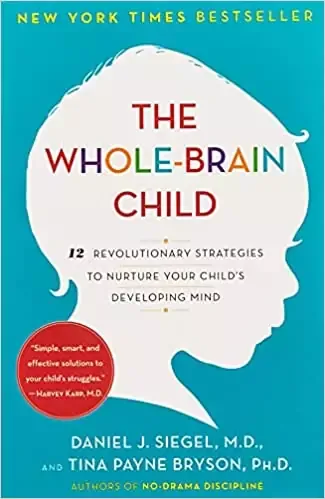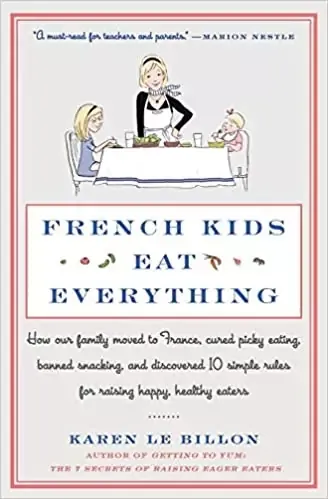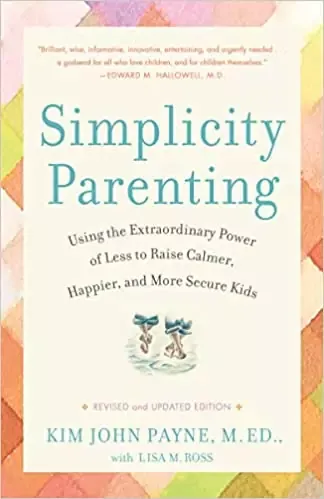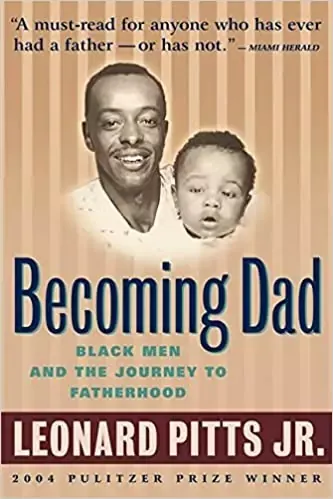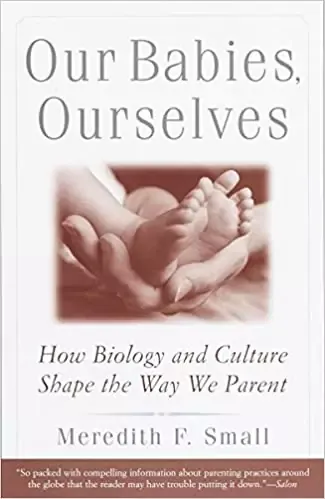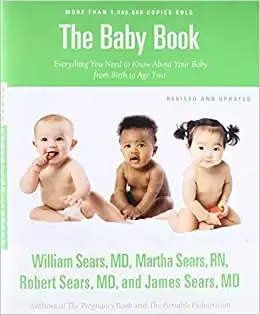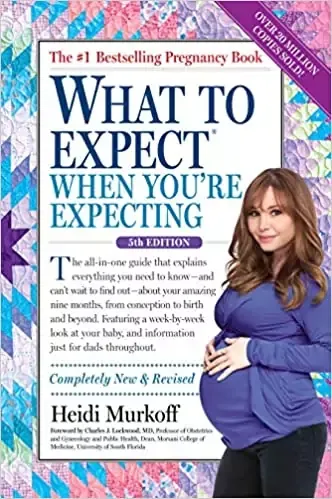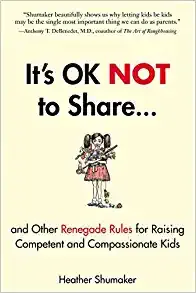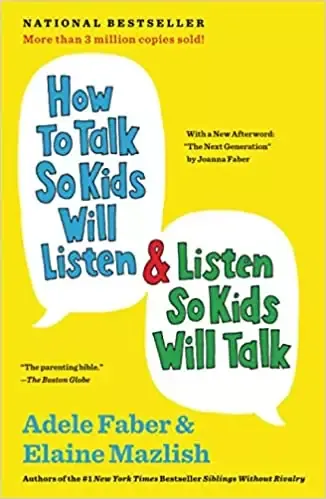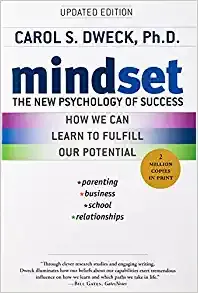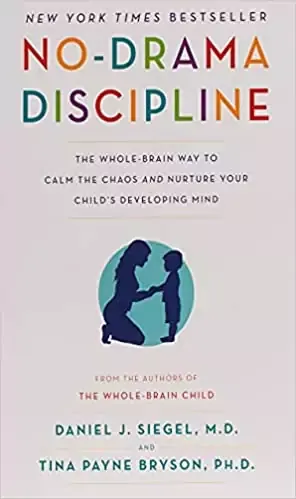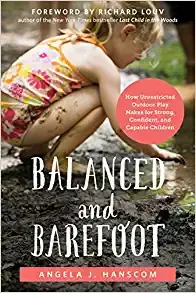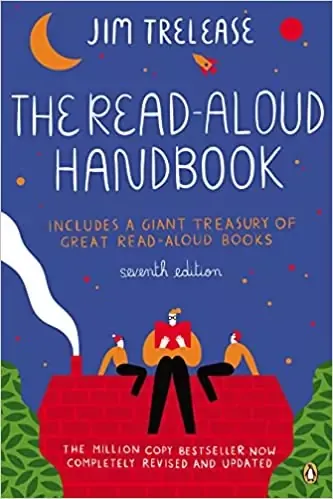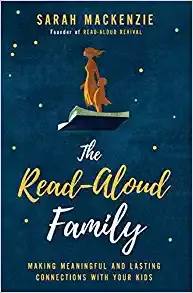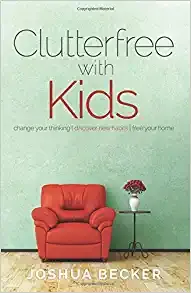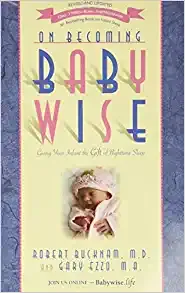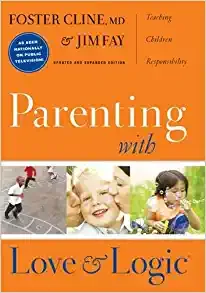When we talk about the 30 Best Parenting Books for Toddlers of 2024, There are a lot of books out there that are available for you to read.
Parenting is a wonderful experience who want to give everything they have to their child. Nevertheless, it's crucial to remember that even the best parents sometimes need a book to figure out what's best for their child.
Parents are often the top priority of children's education, but for many new parents, children's education seems a little at a loss. Many friends are already moms and dads.
Every time they go out to a party, they will always talk about the education of their babies, consciously or unconsciously. Especially dear mothers, the troubles are really one after another.
Some notable parenting books for toddlers include here: Keep Calm: The New Mum's Manual, The Whole-Brain Child, French Kids Eat Everything, Simplicity Parenting, The Danish Way of Parenting, Becoming Dad, Infants and Mothers, Our Babies, Ourselves, The Sears Baby Book, and It's OK Not to Share.
These aren't the only books on this topic. Below, you'll find 30 books with detailed descriptions of each of these outstanding resources, helping you make well-informed decisions in your toddler parenting books journey. I'm pleased to offer my expert recommendations in this article.
Top Toddler Parenting Books for Mastering Positive Discipline, Behavior, and Development
If you want to improve your parenting experience and parenting ability, in addition to continuous learning in daily life, reading is the fastest way for mothers.
Books have very rich parenting theories and previous experiences. We only need to learn to be able to solve various problems and doubts that we encounter in daily life.
You can get parenting books for strong-willed toddlers that tell you what to expect, guide you on how to handle your child, and calm you down when you notice rebellion in your child.
In this article, we will try to help you by giving you a list of the 30 Best Parenting Books for Toddlers of 2024 that we’ve found. The list is based on our experience and what we read that we thought was good.
1. Keep Calm: The New Mum's Manual
Keep Calm: The New Mum's Manual, with an introduction by Jools Oliver, is the perfect antidote to inflexible, guilt-inducing parenting guides. Turning the tables on encyclopedic tomes on parenthood and their often conflicting advice, GP and mum-of-two Dr. Ellie will empower you to relax, trust your instincts, and enjoy your new baby.
Includes:
- Early days – looking after a baby and listening to your instincts
- Sleeping – establishing a flexible routine that works
- Feeding – making the right, guilt-free choices
- Soothing – understanding crying and settling your baby
- Weaning – starting with a simple action plan for success
- Development – identifying key milestones and not worrying
- Health – recognizing baby illnesses and when to call the doctor
- Vaccinations – understanding the facts and getting them without tears
This isn't a one-size-fits-all routine but a lighthearted, sensible guide that is full of essential advice to build your confidence and bring back mummy power.
2. The Whole-Brain Child
From the perspective of brain science, this book explores how to cultivate a "whole-brained child", that is, the so-called "developmental education". Integrating self, integrating self and others, in the translator's postscript, there is a brief summary of these aspects:
a "whole-brained child", that is, a child with an integrated brain should be able to work together with the left and right brains, and their own logic The self is connected with the emotional self; a connection is established between the "lower brain" that represents instinct and the "upper brain" that represents speculation to develop decision-making ability, insight, compassion, and morality; to understand one's own past, a kind of Express and deal with pain from the past in a gentle, sober, and conscious manner; have the ability to perceive and reflect on one's own mental state, be able to independently decide how to feel and face the external world, and be able to establish a connection with others while maintaining an independent self.
The author lists 12 strategies according to 5 integrated frameworks, and at the end of the book gives a summary application method for children of different ages, which is relatively concise and can basically be used immediately.
The difference between this book is that it starts from the perspective of expanding thinking, that is, expanding the breadth, depth, and height of children’s brain thinking through a variety of integrations. The book also lists some cases for an explanation.
Personally, integration is also a kind of balance. It allows children’s brains to develop in a balanced way. The balance between sensibility and rationality, between instinct and speculation, between the past and the future, between the self and the periphery, and the balanced development of thinking help Establish an excellent mental model that will help them communicate with the world as they grow up.
But more importantly, the "integration" of parents or caregivers themselves, that is, they must "integrate" themselves before integrating children's development by these five aspects, educating others and themselves. This seems to be the basic principle of all child nurturing theories. one.
In short, be patient, understand, think, and interact more with children. The so-called strategies and skills are only the concrete manifestations of the caregiver's behavior. The key is to cultivate yourself, otherwise, it will be too hypocritical.
3. French Kids Eat Everything
Children are picky eaters and do not like to eat, eating a meal is like a war, making you one head and two older? Why do French children eat a balanced diet, love to eat all kinds of fruits and vegetables, are not greedy for snacks, and are still polite when sitting at the table? Together with the author, we will uncover the secret that the French teach healthy children who are not picky eaters!
In the food war with your children, as a parent, you are always defeated and helpless?
By flexibly using the 10 dietary guidelines in the book, you can also teach healthy children who are happy to eat!
Because he yearned for life in her husband’s hometown, Karen eagerly dragged her husband and two daughters to France, thinking that the family was about to embark on a dreamy and beautiful life in a foreign country, how unexpectedly her eating habits and her two daughters became relatives and friends. Friends and even strangers have raised the subject of siege! A baptism of food culture with climax and humor unfolded...
In addition to the lively and lively life in France with tears in laughter, the book also compiled 10 dietary guidelines and practical tips to help you re-educate your children's appetites and taste buds. I don't know where to start? There are simple, delicious, and healthy French recipes at the end of the book for you to learn easily. Let’s go on the journey of French food education!
Teach 10 dietary guidelines for children who are not picky eaters:
- Criterion 1: Majestic family diet education
- Rule 2: Avoid emotional eating
- Principle 3: Diet schedule and diet choices
- Rule 4: Eat together
- Principle 5: Eat a variety of healthy foods
- Rule 6: Try unfamiliar food
- Principle 7: Tips for eating snacks
- Rule 8: Create a happy and relaxed eating atmosphere
- Rule 9: Eat "real" food
- Rule 10: Eat happily, don’t eat under pressure
4. Simplicity Parenting
Waldorf educator and consultant Payne teams up with writer Ross to present an antidote for children who are overscheduled and overwhelmed by too much information and a fast-paced consumer culture that threatens the pace and playful essence of childhood.
Payne claims that a protective filter should surround childhood, rather than the competitive, stressful adult world that has encroached on childhood's boundaries, preventing kids from developing resiliency with a sense of ease and well-being.
But Payne is not a doomsayer: he presents a wealth of practical ideas for reclaiming childhood and establishing family harmony. In chapters covering four levels of simplification—environment, rhythm, schedules, and Filtering Out the Adult World—Payne explains how parents can tackle extraneous stuff and stimulation by reducing the mountain of toys, limiting scheduled activities, providing valuable downtime, and employing such pressure valves as storytelling and periods of quiet.
According to the authors, limiting choices and activities will lead to kids who are more secure and less stressed, and to parents whose days are calmer. With fewer choices, Payne explains, families have the freedom to appreciate things—and one another—more deeply. Though simple parenting may seem a stretch for some, others will find that Payne's program for restoring creative play, order, and balance is long overdue.
5. The Danish Way of Parenting
There is an American mother, Jessica. After she married her Danish husband, she deeply felt the difference and significance of this kind of education. Compared with the strong colors of American individualism, Danes pay more attention to acceptance and interaction with others.
Jessica summarized and wrote a book called "Learning Happiness Education from Danish Parents". The features of empathy education for Danish children in the book are impressive.
After reading this book, I feel that children’s task when they are young is to know how to play! Will play with people of different ages! Children should go to a kindergarten where a Frenchman is a cook and a Danish is a teacher! Perfect!
There is a summary at the beginning and the end. This small book contains these points: play /authenticity /reframing empathy /no ultimatums /togetherness and hygge. It is easy to read because it is basically a paper with occasional stories.
But what is a bit uncomfortable is that many books are based on the fact that American parents are so imperfect, so we have to learn the Danish education method and extend it to the outside world.
6. Becoming Dad
A book about African-American men and their experiences as dads and with their own dads. The fatherless black family is a problem that grows to bigger proportions every year as generations of black children grow up without an adult male in their homes.
As this dire pattern grows worse, what can men who hope to break it, when there are so few models and so little guidance in their own homes and communities?
Where can they learn to “become Dad?” When Pulitzer Prize-winning columnist Pitts—who himself grew up with an abusive father whose absences came as a relief—interviewed dozens of men across the country, he found both discouragement and hope, as well as deep insights into his own roles as son and father.
An unflinching investigation, both personal and journalistic, of black fatherhood in America, this is the best, most pivotal book on this profoundly important issue.
7. Infants and Mothers
A book that identifies three categories of infants in this formative period: quiet, active, and average. To the first edition, there is a zest and vitality in human infancy that shows itself at every turn. The infant looks with absorptionï and drinks in his environment well before he "knows how " to do anything about taking hold of it.
He scouts his world for every sign of what is novel and monitors not only what goes on right before him but also what is happening at the edges of his world. At the start of the opening weeks of life, the baby is either alertï "turned on" and in a mood to explore, or he is "turned off " in the total way that young infants have of turning off.
Graduallyï alertness spreads over longer periods and the infant begins on new tasks--social lifeï manipulation of thingsï and the gradual lacing together of the world of the eyes with the world of the hands. A career of self-projected travel begins early--perhaps when the baby can turn from his back to his tummy--and the realm over which control extends expands as no empire ever has.
There are memorable landmarks. There is the first time the child sustains his look into his mother's eyes and begins a career of social exchange of such complexity that no grammar has yet been devised to explicate it. There is the first smileï earlier than the books say and a genuine expression of pleasureï despite early detractors who suspected gas pains.
There is the first time that the infant can go on looking at the world around him while still feeding at breast or bottle--probably the opening achievement of the art of doing two things at once which will burgeon later on.
There is the first visually guided reach for an objectï hand widespread attention long sus- tainedï and a final capture with the object delivered for inspection to the mouth--the mouthï that lighthouse in the midlineï the all-purpose sense organ. And on it goes.
For those of us who study the growth of infant competenceï, the mysteries are no less deep than for any other observer. We are only beginning to appreciate how subtle the processes of growth are--
8. Our Babies, Ourselves
A thought-provoking combination of practical parenting information and scientific analysis, Our Babies, Ourselves is the first book to explore why we raise our children the way we do--and to suggest that we reconsider our culture's traditional views on parenting.
New parents are faced with innumerable decisions to make regarding the best way to care for their baby, and, naturally, they often turn to guidance from friends and family members who have already raised children. But as scientists are discovering, much of the trusted advice that has been passed down through generations needs to be carefully reexamined.
In this ground-breaking book, anthropologist Meredith Small reveals her remarkable findings in the new science of ethnopediatrics. Professor Small joins pediatricians, child-development researchers, and anthropologists across the country who are studying to what extent the way we parent our infants is based on biological needs and to what extent it is based on culture--and how sometimes what is culturally dictated may not be what's best for babies.
Should an infant be encouraged to sleep alone? Is breastfeeding better than bottle feeding, or is that just a myth of the nineties? How much time should pass before a mother picks up her crying infant? And how important is it really to a baby's development to talk and sing to him or her?
These are but a few of the important questions Small addresses, and the answers not only are surprising but may even change the way we raise our children.
9. The Sears Baby Book, Revised Edition
The Sears Baby Book, Revised Edition: Everything You Need to Know About Your Baby from Birth to Age Two (Sears Parenting Library) by James Sears MD (Author), Robert W. Sears MD (Author), William Sears MD FRCP (Author), Martha Sears RN (Author)
In this encyclopedic guide, Dr. William and Martha Sears draw from their vast experience as both medical professionals and parents to provide authoritative and comprehensive information on every aspect of infant care.
The Baby Book presents a practical and contemporary approach to parenting that reflects the way we live today. It is a comprehensive guide to baby care, focusing on the essential needs of babies -- eating, sleeping, development, health, and comfort -- as it addresses the questions of greatest concern to parents today.
The Searches acknowledge that there is no one best way to parent a baby, and they offer the basic guidance and inspiration you need to develop the parenting style that best suits you and your child.
The Baby Book is a rich and invaluable resource that will help you get the most out of parenting -- for your child, for yourself, and for your entire family.
The topics covered include:
- - bonding with your baby and soothing a fussy baby
- - feeding your baby right
- - getting your baby to sleep
- - understanding your baby's development
- - treating common illnesses
- - Baby-proofing your home
- - toddler behavior and dealing with tantrums - toilet training
- - working and parenting
10. What to Expect When You're Expecting
The cover of this book states that the author is the world's best-selling maternity and childcare author and one of the 100 most influential people in the world. To be honest, before the library stumbled across this book, I actually didn't know there was such a person.
The book includes detailed preparations for pregnancy, possible concerns during pregnancy, various symptoms that may occur during pregnancy, and guidance on life during pregnancy. The book also contains a chapter for prospective dads, but there are probably fewer dads who really have the patience to read this book. After all, the book has 575 pages.
Regarding health care during pregnancy and physical discomfort, including problems that you need to be treated for, the best way is to consult a doctor. But during pregnancy, reading this book can teach a lot of professional knowledge, so pregnant women who encounter some minor problems can get a lot of benign advice and encouragement.
The author's tone is more like a good neighbor and friend who has professional knowledge and enthusiastically encourages pregnant women. Five-star recommended reading for pregnant mothers.
11. It's OK Not to Share
So first I have "It's Okay Not to Share and Other Renegade Rules" by Heather Shoemaker my husband and I often call this the renegade rules book when we're talking about it because it's easier this is a book for parents of kids between the ages of 2 and 6 she also has a book called it's okay to go up the slide which goes up to age 10 but I haven't read that one yet.
I'm sure it's just as good as this one and I'm looking forward to reading that one I'm just waiting until my kids are a little bit older so one of the things I absolutely love about this book is all of the rules that she shares for parenting are based on the rights of children and the rights of parents and she lists out the rights of parents and children half.
for example one of the rights of children is children have the right to uninterrupted free play one of the rights of parents is that parents have the right not to go insane I love that right my husband and I use it all the time when you know like one with the car and the kids are screaming or something no but that really is one of the rights that she talks out in here so some of the examples of rules that she shows in here long turn kids how kids can take long turns.
If a child is playing with something and another child wants it the second child can wait for the first child to be done and the first child can decide how long they want to play with that toy and then you know and then share and I really like that rule.
another example of a rule is that all feelings are okay all actions aren't and that's a really important rule as a parent you know it's okay for your child to be sad or mad at you it's not okay for your child to hit you.
one of the things that I really love about this book is that each rule gives examples of phrases that a parent can use along with the rule and phrases that the parent could avoid so one of the phrases that we use a lot is I can't let you hit me or I can't let you hit.
Ashton hitting hurts people and those are just some phrases that we use you know when our kids are you know when my two-year-olds hitting me because she's mad at me I can't let you hit me and I grabbed her hand so that she can't hit me and it's just it gives me a reaction so instead of just getting really mad at her I have something to a way to react.
and I love that they give a lot of examples like that here in very specific phrases that you can use to cover a lot of things everything from you know how to deal with kids' emotions to how to deal with sharing and kids interacting with each other and dealing with conflict between kids to things like how to handle death and s*x and those kinds of topics with your kids and it even covers things like art and dressing up and it covers so much in this book.
one of the things that I really really love is their golden rule which is if it's not hurting people or property it's okay I use that golden rule all the time because I am a type one kind of controlling type persimmons though it really helps for me to stick it take a breath and step back and say it's not hurting anything they can do that.
another thing I love that they have in here is they have little boxes throughout the book that say to take off your adult lenses and it kind of goes along with the golden rule where if it's not hurting anyone sometimes we as adults think that things need to be done in a certain way but really it's fine kids do it a different way.
one other thing that I really love about this book is how it focuses on teaching kids how to deal with conflict and keeps giving them the tools to deal with conflict and then stepping back as they learn those tools and letting them work it out between themselves but also giving you as the parent tools to help mediate to help teach your kids to deal with the conflict.
the last thing in this book that I wanted to mention that I really really like is at the end of every section they have out-and-about tips which are just tips for how to deal with other parents or when you're with other families or you're at the park or you in situations where these rules might be harder to apply because you're with other people and I love it gives really specific examples and specific things that you can say and I found those really really helpful this is a really great parenting book if you have a child under the age of 6 or 7 I would definitely recommend picking it up.
12. How To Talk So Kids Will Listen and Listen So Kids Will Talk
Next, how to talk so kids will listen and listen so kids will talk by Adele Faber. Adele Faber actually published this book in the 80s I believe and it talks about a lot of the same principles. but it's not for specifically little kids it has a lot of examples from little you know toddlers all the way through teenagers and talks about kids just in general.
this book is based on other parents and shares a lot of other parents' experiences but it doesn't have the same narrative feel it's much more self-help just chapter by chapter feel and so some people might like that better.
13. How to Talk so Little Kids Will Listen
The next parenting book I wanted to share is How to Talk So Little Kids Will Listen by Johanna Faver and Julie King this is one that I found pretty recently but I have absolutely loved it it's also for ages between 2 and 7.
personally, right now because of my kids' ages, I actually prefer this one simply because of ages as they get older I'm sure that I will reference the other one more because it will be more applicable to me at the time so the first half of this book focuses on like general principles and tools and parenting techniques and then the second half of the book actually has different chapters with specific situations like if your kid is lying or and things like that and how to specifically apply the tools that they introduced before to those situations which I think is really useful for reference.
one thing I loved is just the focus on parenting in a very loving kind and respectful way while still setting limits but really being respectful and kind one of my favorite phrases that they use a lot in the book is take action without insult and that just means if you've tried all of your tools and techniques and everything and that your child just isn't listening and you have to you know their child's throwing vodka other people at the park and you've tried everything and they won't stop and you have to leave the park to leave but not insult or disrespect your child while doing it you don't have to be mad you don't have to blame your child or shame child you can just simply take them and say it looks like we're having a hard time listening.
today we'll have to come back another time or I don't like to see Bart being thrown at kids will come back and try playing at the park another time and you can do it in a very kind way rather than being rude or angry about it and I love that's the way that I want to parent personally and so I really really love that focus in this book.
one thing it really talks about is it compares how we talk to our kids to how we talk to other adults or even our spouse or ourselves and I think that's a really good thing to keep in mind as you are talking to your kids like what I say this to another adult or in it is this really degrading one thing this book as well as the other book by Adele Faver they both do this is they use comics to show the difference between how we would normally react or discipline our children versus the new technique and the differences between what the children are thinking and what the children the results that you get from them and different things like that.
and I think it's a very useful way to write a parenting book two things that I really really loved about this book first. it gives you a lot of tools for how to get your children to cooperate without actually telling them what to do because it talks about how the less you tell a child what to do the more likely they are to listen when you do tell them what to do and what other adults tell them what to do and so it gives you a lot of tools for that and it works really well.
the other thing that I really like about this book is it talks about problem-solving in place of punishment or even consequences and I really really love their method and why they do it they go way into depths of the benefits and why they do problem-solving and how to do how to specifically use problem-solving in place of punishments for certain situations and why it's better for both the child and parent and certain steps that you can or need to take with it and everything so it's I love that part of the book this is a really really fabulous book I would definitely recommend picking up this book or how to talk so kids will listen and listen it's okay the kids will talk if your child is older.
14. Mindset: The New Psychology of Success
my next book is "Mindset A New Psychology" by Carol Estwick this is technically not a painting book it does have a section specifically for parents and it has other sections for others like coaches and teachers and things but the overall principle of the mindset.
I think is just such an important concept especially for kids because she talks about a fixed mindset versus a growth mindset and a fixed mindset is where you think that your traits like personality or IQ or talents or whatever it is that they're fixed that there is set in stone and there's not much that you can do to change them.
and then she talks about the growth mindset which is believing that your traits that they through three things through your efforts using different strategies and through asking for help through those three things you can grow as a person and improve all of your different qualities whether that's personality or your IQ or a talent or whatever it is reading the book.
I was surprised at how much of a fixed mindset I had in so many different areas and it made me really want to improve but it really opened my mind to how important is as parents that we try and help cultivate a growth mindset for kids because the growth mindset is like one of the number one telling points of whether you're successful in life or not basically.
if you have a growth mindset you're more likely to be successful and if you have a fixed mindset you're probably not going to be as successful in life in all areas of life whether that's relationships or jobs or whatever it is and it's really important as parents because a lot of the studies they've done they've actually found that kids even as young as three or four years old can already have a fixed mindset when it comes to certain things.
and so as parents, there are things that we can do and the book talks about a lot of those things there are things that we can do that can really help cultivate that mindset in our kids and there's also a lot of information online a lot of parenting blogs that talk about this concept as well if you wanted to go read those to get a more condensed specific to parenting information.
15. The Explosive Child
1. How do you think about the reasons why children are irritable?
Parents' attitudes and perspectives determine the solution.
One attitude and point of view is: He did this intentionally; he wanted to attract my attention; he wanted to control adults;
One attitude and view is that children lack abilities in certain aspects: poor adaptability, poor ability to change scenes, and poor expression ability. This is because they are irritable because of insufficient abilities.
The author of this book insists on the second point of view, believing that if a child has enough ability, he will perform very well. Children don't mean to be annoying. This is very similar to the point of view in "The Magical World" that I have read before. There is a reason why children do not lose their temper intentionally.
2. Adhere to principles, guide problem-solving, and create a relaxed environment
Divide the child's behavior into three baskets: A, B, and C. Before the child explodes on different things, first consider what specific problem it is.
- Basket A (safety issues - must be followed, even if it is to be detonated, must be adhered to, a matter of principle)
- Basket B (If you need to guide the child to face it together and solve it through negotiation, you can provide the child with ways and means to solve the problem, and train the child's adaptability, handling ability, and thinking ability when facing problems or various situations)
- Basket C (small things, there is no need to explode because of insisting on some small things)
3. Divide the stages of children’s irritable behavior into:
- The airlock stage (brain short circuit) is like the engine suddenly stalling. At this stage, the child loses the ability to think. Even if adults scold, educate, reason, or punish, the child will shut down his ability to think and will no longer be able to receive any information. The only effective way is to quickly cool him down and calm him down.
- How should parents respond at the intersection stage? Either it is guidance, facing it together, and rational resolution; or it is an outbreak, with both parties becoming hostile and worsening the incident.
To reduce the frequency of your child's tantrums, it's most important to address the problem before it happens.
16. No-Drama Discipline
the next book I wanted to share is "No Drama Discipline" it's by the same people as The Whole Brainchild and they look at discipline from a neurological standpoint it is so good it's the best book on discipline that I have ever read so they look at things like normal common ways that we discipline our children like spanking or timeouts and different things like that reacting and what it does in there in the child's brain and why it would be better to do it a different way and then they share in a specific way.
they basically say that you connect and then you redirect the behavior so you connect with your child and then you redirect the behavior and they talk about from a neurological standpoint why that's so much better for kids and how even doing that helps reshape their brains that later they have better behavior in the future because their brains are more mature and can handle more and the neurons have you know they talk about all sorts of science stuff and they're in a very useful way again and I absolutely loved that.
one of the things I absolutely loved about it as well is just they talk about the main goal of discipline which is to teach our kids you know there are tools of discipline there's the long term just teaching our kids correct behavior and there's the short term stopping or changing or whatever the current behavior that they're doing and it really talks about how how to effectively do that and but it always does that with that goal in mind.
and I really like that it does that I also really love the emphasis that they place unconnected partially because that is something that I feel I don't do enough and do well enough and it's something that I'm trying to improve on that a lot of the other books I mentioned talked about as well but this book really emphasizes it and I loved that.
finally, the last thing I loved about this book is the very last section it talks about how as parents we're not going to discipline the way that we want to every time how we're not perfect parents, and how we're going to mess up but it's okay it's not going to mess up our kids we can still have a good relationship with them and everything and I really love that.
because I feel like as a parent I read a lot of parenting books and I have a lot of tools under my belt but I just mess up so often I don't react the way that I want to and that is a really common thing for parents to act with their children in a way that they don't want to because it's hard and this book really tough goes into depth on why it's okay but that's that but that happens
and that you can use that in a good way with your kids how your kids, first of all, look at you and they'll see that it's okay to make mistakes that everybody makes mistakes even my parents make mistakes, and then if you go and you apologize and you reconnect with them you're also teaching them how to fix a mistake when they mess up and how to make amends if they caused a rift in a relationship and that is a really really important useful tool to have throughout your whole life.
and so the last thing this book talks about which I think a place that all parenting books are that even when it doesn't work it works because sometimes these tools and the books and the examples they share make it sound like if you do these things then your child is going to react and it's like a magic pill that makes parenting so much easier and sometimes it does but sometimes it doesn't sometimes you do all the right things and you say all the right things and your child still has a meltdown or your child's illness behaves.
and that's normal because kids aren't perfect either and kids aren't robots but the book really focuses on how even when it doesn't work even when you don't see a result your child still has a meltdown or misbehaves it still works because they see you as the parent connecting with them they see you as the parent teaching them the skills that they need they see you as the parent loving them even when they're misbehaving or even when they're having a meltdown and that's the most important thing.
17. Balanced and Barefoot
the next one is "balanced and Barefoot" by Angela Johnson this book talks about its main focus is how important free play outside is for kids she actually recommends 2 to 4 hours outside every single day for every single child and we don't do that every single day but we do try and get outside time every single day and strive to have hours and hours outside and it's because of this book that we do that and that's one of the reasons I love this book.
this book motivates me to take my kids outside and helps me feel like a better parent when we do go outside or do go to the park or do go unto the trees or whatever it is even if my child ends up eating dirt or they have a meltdown or sunburn or whatever the book really goes in-depth on the benefits of free play and that the benefits of being outside and everything like that.
it talks about how to help your kids play independently outside more and some ideas to help them with that and ideas for you for what to do outside and where to go even if you live in the city or something it has different sections on age groups including babies and taking babies outside which that was a fantastic section.
and it also talks about playgrounds and resets and how to find a good playground to go like a good part to go play out with your kids and how to make your backyard a really good environment for your kids to play outside I thought it was a very well-rounded great resource for parents and like I said it really motivates me to take my kids outside which is my favorite part of the book.
18. The Read-Aloud Handbook
next, I really wanted to talk about "The Read-Aloud Handbook" by Jim's release because I think every single parent should be required to read this once they have a baby I think that this is just a phenomenal book it really just talks about the benefits of reading a lot to your kids from birth through teenagers and on and even after they can read to themselves and even when they're you know so young but you don't think they're getting anything out of it it really talks about all of those benefits and it also really goes in-depth on how to encourage your child to be a lifelong reader.
and the best ways to do that I love everything in this book it's very study based it talks a lot about statistics and studies that they've done and I loved that as well I thought it was super interesting.
the second half of the book is a recommended reading list which has been really helpful we've gotten a lot of books on that reading list and overall it's just a fantasy but if you want your child to grow up to be a reader which I'm guessing you do because you're on my blog and this is definitely a fantastic resource to pick up and have in your home library.
19. Honey for a Child's Heart
I also just briefly wanted to mention "Honey for a Child's Heart" that's like a Christian book about reading a lot to your kids and kind of creating a culture of reading and how it even has a chapter and like reading about the Bible to your kids and different things like that and I thought it was a very well-done book I didn't like it as much as the read aloud handbook because it didn't have as much of the statistics and everything it had some.
but I really liked it overall and it's one that I am planning on buying shortly to have in my home library as well because I thought it was a very well-done book like I said it's a very Christian base.
20. The Read-Aloud Family
I also wanted to mention "The Read-aloud Family" by Sarah Mackenzie she has a podcast that she calls the read-aloud Revival but I have listened to it before and I loved it.
this is recently coming out this one's sort of Christian-based in that it's not as heavily based on Christian values and everything but she talks about just reading a lot as a family and her experience with it and finding the read-aloud handbook and just I think that she has a lot in here that they read a lot handbook doesn't have and I love this book.
21. Getting to Yum
next, I wanted to talk about "Getting to Yum" by Can Lead Billion this is just a book about how to help your kids not to be as picky eaters so that they enjoy a bigger variety of foods and also to help encourage your kids to be able to try new foods I love the ideas in the book.
she also has a lot of game ideas to help introduce new foods and different things to your kids especially if you already have a picky eater she has a lot of different games and she has them for all sorts of different ages and everything and I thought that gave me this all sounded really fun.
I really loved her focus on the positive and laid-back approach to helping your kids enjoy food it they don't need to eat certain foods right now but you're focusing more on the experience and letting your kids lead the way with what they eat.
It also motivated me to be healthier and to want to try new foods because I feel like we eat fairly healthy but I don't necessarily try new foods all the time so it really helped me with that because one of the main things that will get your kids to eat better and to be willing to try new things is seen you eat healthy foods and try new things and really enjoy it.
22. Clutter-free with Kids
the fourth book I wanted to mention here was "Clutterfree with Kids" by Joshua Becker it talks about the benefits of a more minimalist lifestyle with kids and how to achieve that and I thought it was very very well done I really loved that.
he is more of a practical minimalist which is what I consider my husband to be we still own a lot of things and we live in a house and we have kids and you know but we try not to own a lot of just stuff and not let our stuff on us but to be a lot more intentional with what we bring into our home and what we have in our home and I love that focus of his we have seen a lot of benefits doing a lot of the things that he suggested in the book for both us and our kids owning less stuff has been a really great thing for our family.
23. Smart Money, Smart Kids
the next book I wanted to mention was "Smart Money Smart Kids" by Dave Ramsey and Rachel Cruise I am a big Dave Ramsey fan and so I really like this book it's written by both Dave Ramsey and his daughter Rachel Cruz and they kind of go back and forth and have different sections where they're the ones talking.
and I really enjoyed that a lot of it is based on the principles that Dave Ramsey teaches to adults which is like stay out of debt have emergency savings you know have a balance of spending giving and saving those kinds of things and just how to pass those money ideas on to our kids and teach kids to be financially responsible they have kind of a step by step age by age plan for teaching kids money tools and about money and how to slowly give them more responsibilities and the consequences that come with those responsibilities.
so that as they face some of those negative consequences the consequences aren't quite as big because they're still in the home and it's on a smaller scale that way when they go into the world they're just better equipped to handle the financial side of life which is always a good thing some of the topics they cover checking accounts cars allowances big expenses as teenagers you know kids budgets to the envelope system and college is a big thing that they talk about.
and so it's a really great book that talks about it really covers a lot of information and is a very useful thing to have around as just a reference as well our kids are getting about old enough that I want to buy it as a reference so that I can go back and look at it again and see what we can start doing it Ashtyn to start but you know building those base principles I guess.
24. Solve Your Child's Sleep Problems
the next book "Solve Your Child's Sleep Problems" by Richard Ferber. he's famous for the Ferber method of crying and then going in at different intervals and stuff and I have to say I've never actually used his method with either of our kids and I don't really plan on using it with our third child either but I love his book because he spends a lot of time on this it's behind sleep which really is useful as a parent.
so you can say well my child is doing this why and it really helped me to figure out why he also has very specific sleep problem topics like wetting the bed and things like that that he goes through and talks about how to solve those problems and I really really love that.
25. On Becoming Baby Wise
the next book "Becoming Baby Wise" by Gary EXO and I also linked my favorite blog down below it is the chronicle of a babywise mom and I love her blog and all of her blog posts and everything this book the things I got out of it the most we're just the importance of routines and just having a bedtime routine and having a routine for when they wake up and go to sleep.
I also really loved the sleep-eat play cycle that they talk about where your child sleeps as soon as they wake up your baby you feed them so that they're awake enough to get a full feeding then they play and go back down to sleep when you try and follow that cycler routine and we really try and implement a routine with our babies as early as possible and it really helps so that they sleep better and we sleep better and I have found a lot of benefits from that.
26. Siblings without Rivalry
the next book "Siblings Without Rivalry" by Adele Favorite and Elaine Maslow the same people who wrote How to Talk So Kids Listen and Listen so Kids Will Talk and this one just talks about how to help your siblings or how to help your children have good relationships with their siblings even if they're not best friends but just be able to interact with each other in a positive way I guess and work through their differences.
27. The Gift of Failure
This really just talks about exactly what it says which is how important it is for our kids to experience failure and why and how we as parents can help them with that I thought it was a great book.
28. Five Love Languages of Children
I also wanted to include the "Five Love Languages of Children" by Gary Chapman and Ross Camel I really liked the Five Love Languages book and I felt that this was a very useful one for kids because it talks about the five love languages and how to really show love to your it.
but it also gives very specific examples of how you can show each show love in each language at the end of the chapter to your kids I loved the specific ideas that they had and I want to go back and reference it and reread it now that our kids are getting just a little bit older.
29. Peaceful Parent, Happy Kids
This is an attachment parenting book and it basically is exactly what it says it just helps you to become a more peaceful parent and has a lot of good ideas in it it's not exactly my failed painting which is why it wasn't one of my absolute favorites.
but I know a lot of people really really love it and the author has a lot of resources online so if you google her name I'm sure you'll find a lot of resources there and I did get quite a bit out of the book even though it was it exactly my parenting style.
30. Parenting with Love and Logic
the last one is "Parenting with Love and Logic" by Foster W client and I know they also have a class slash program thing that I don't know if you could google as well I've never done that but I thought the book was very well done.
It basically talks about how to parent win-win and how to parent so that your kid's consequences of their actions are on them rather than on you and it just gives your child a lot more responsibility and helps relieve you as the parent of trying to control your child I guess and I really like that aspect of the book.
Conclusion of Parenting Books for Toddlers
Those are my favorite parenting books for toddlers today. Thank you for sticking with me through this Uber-long article. I am really excited to be sharing it with you. I hope you enjoyed it and found some books that you want to read now. Thanks for reading.
There is no such thing as perfect parenting, however, by reading these books you can align yourself and become a better parent to your kids.
Which baby or parenting books would you give a gift to? And since we’re talking books again, what are your children’s favorite books?
Know someone who might be interested in this article? Share it with them.



